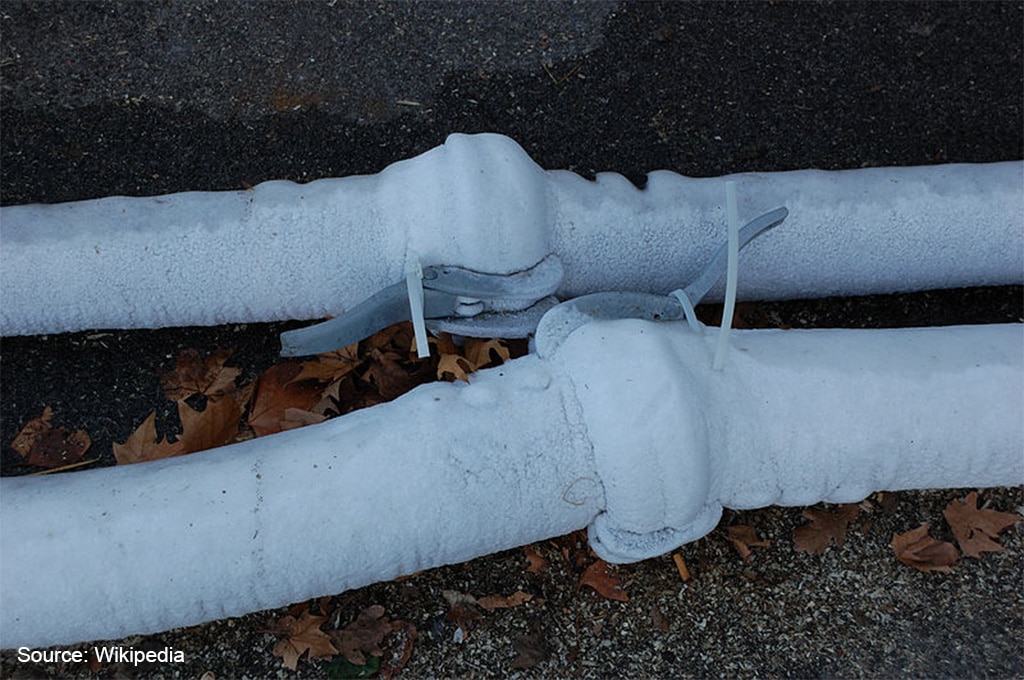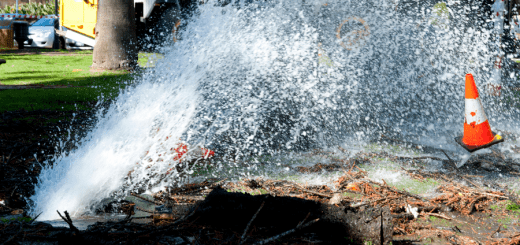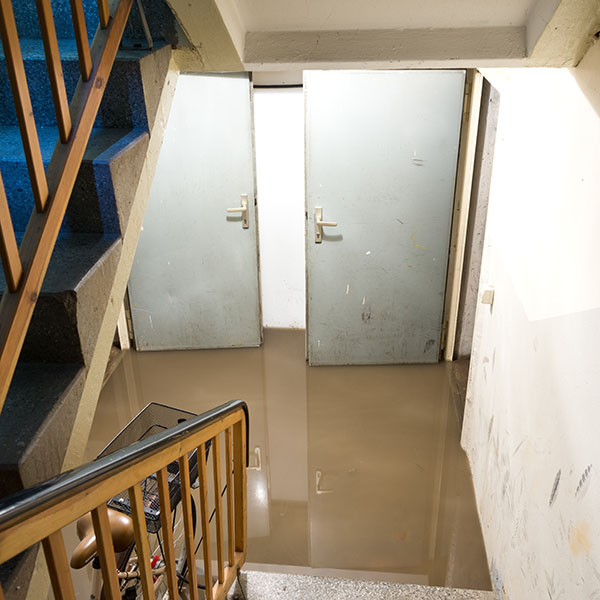How to Thaw Frozen Pipes in the Basement
Outdoor temperatures drop during the nighttime, and this can be particularly concerning during the winter season because of how cold it can get. You and your family can prepare by bundling up with more layers and extra blankets, but your home needs attention as well.
During the winter, your home’s water pipes are vulnerable to becoming frozen, especially exposed ones in the basement. When frozen pipes are not thawed, they can become cracked and leak water into your home. In more severe cases, the eventually burst open and spill water into your home, causing significant water damage.
With proper preparationPreparation is the steps taken to ready a property, equipmen... More, you can help prevent such an occurrence from happening. However, even when you take the necessary precautionary measures, Mother Nature is sometimes too much to handle. So, you may find that pipes in your basement will freeze and burst open anyway.
If you do find frozen pipes in your basement, you should work to thaw them immediately. This quick action will prevent them from bursting open and creating a larger issue.
Continue reading to learn more about frozen and burst pipes, thawing frozen pipes, and what to do if frozen pipes have burst.
How Do Pipes Become Frozen and Burst Open?
When there are freezing temperatures, water inside of exposed pipes — such as those in your basement — will turn into ice. As the water changes into a solid state, it will expand in size.
Because of this, the ice can place pressure on the pipe and crack it or create a bulge. If the ice expands enough, then it can create enough pressure to force the pipe open, allowing water to spill into your basement.
How to Know If Your Basement Has Frozen Pipes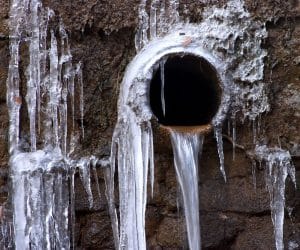
An obvious way to know if you have frozen pipes in your basement is by the sight of frost or ice on the outside of the pipes. But there are also other ways to find out whether your pipes are frozen without going down to inspect them.
Other signs of frozen pipes include low water pressure, water not coming out of the faucet, or encountering a strange smell. This happens because the ice inside the frozen pipe has created a dam that is preventing water from flowing freely through the pipe. Furthermore, any odors in the pipe only have one way to go: back up and into the home.
Frozen pipes can also show signs of cracking and bulging, which are caused by the ice formation. This is particularly concerning and should be addressed promptly because the pipe is likely on the verge of bursting open. The ice has already created enough pressure to harm the pipe, so bursting open would be the next consequence.
How to Thaw Frozen Pipes
If you have frozen pipes, you must act quickly to thaw them before they burst open. While there is a chance the pipes will thaw out on their own, they also might burst open and cause water damage.
When thawing frozen pipes, there are various easy methods you can use. But you should first shut off the water supply and open your faucets. The open faucets will relieve pressure and let any lingering water flow once the pipes have thawed. Also never use any sort of open flame on the frozen pipes because of the dangers it presents.
One method you can use is to take a hair dryer and direct the heat to the frozen pipe, moving it up and down along the pipe. If you have a heat lamp or space heater, you can set that up in the area with the frozen pipe. Just make sure it is at least 3 feet away from all flammable objects and materials. Furthermore, it is important to not leave such equipment unattended.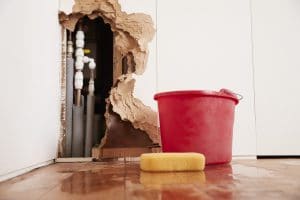
Using an electric heat cable is another easy and effective way to thaw frozen pipes. Wrap the cable around the affected pipe, and it will then distribute the heat to the water pipe. This can also be used as insulationInsulation is a material used in buildings to reduce the tra... More to prevent the pipe from becoming frozen in the first place.
What to Do If Frozen Pipes Burst
In the event your basement is the site of a frozen pipe burst, get help right away. The water that pours into your home will cause damage, but the harm done is minimized when addressed promptly. Reach out to a professional plumber to address the pipe and get in touch with professional water damage restoration services.
Water damage restoration professionals have the equipment needed to eliminate the excess water and moisture, thoroughly dry out affected areas, and make repairs on water-damaged materials. This help will ensure your home is restored to a safe and comfortable living space for the winter.










